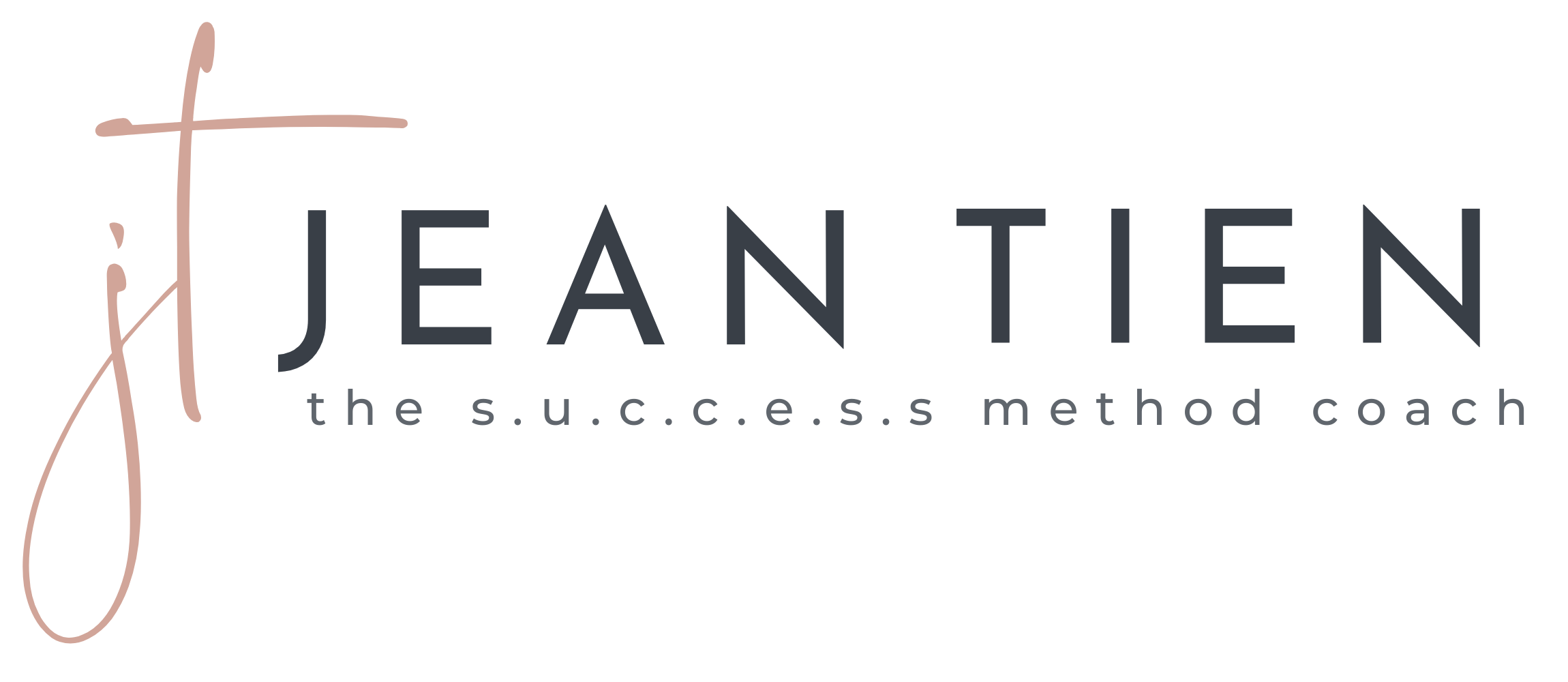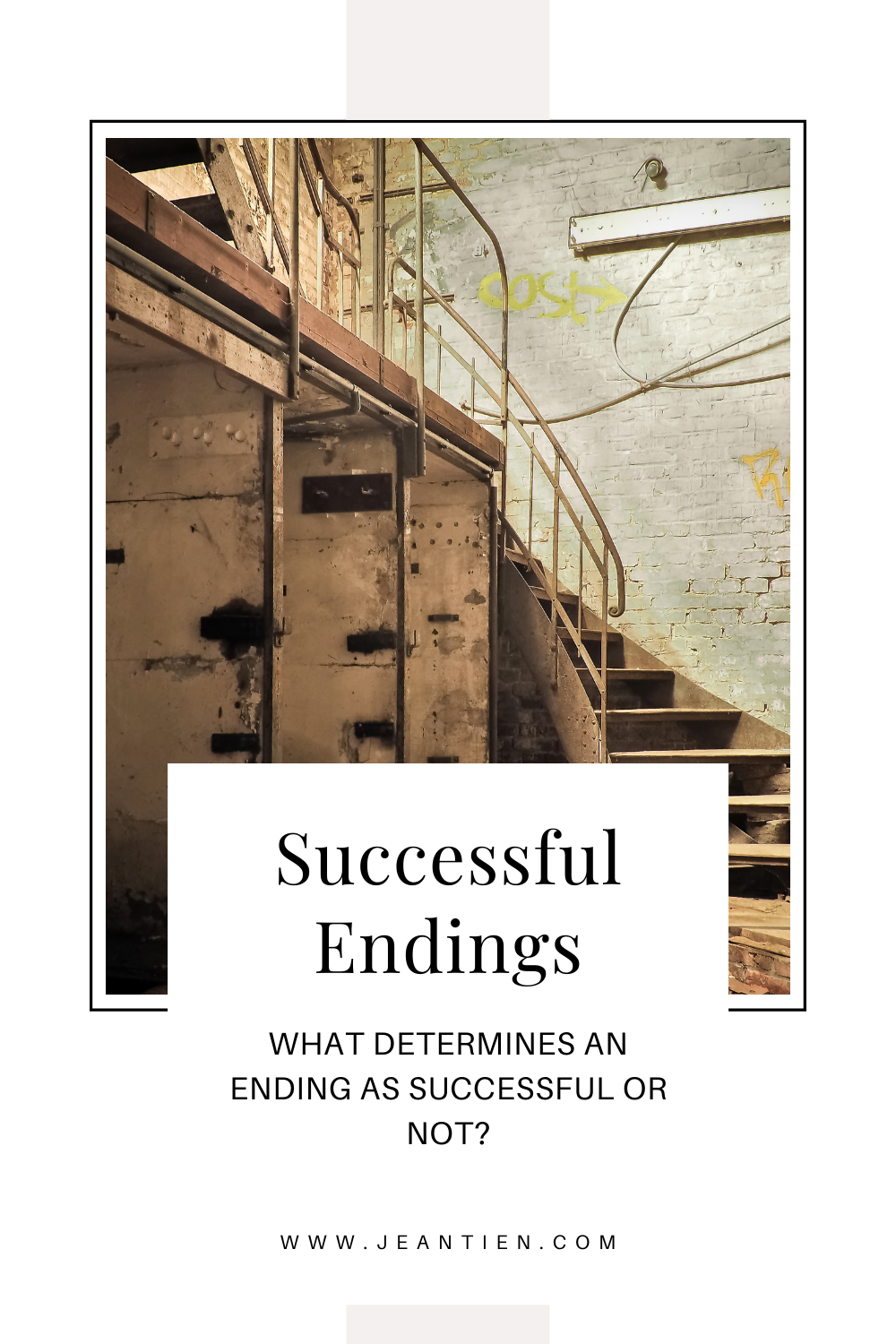Not all endings are created equal, but must all good things come to an end?
If something is going well, then why does it have to end?
Or are endings only successful when you get to control the narrative of the situation? For example, is it a successful departure from your relationship and/or job when you’re the decision maker instead of your partner or job leaving you? No one likes to be told that they’re no longer “wanted”, right?
In the grander scheme of things though, can we really grow without experiencing the circle of life, including death?
These are the questions that I’ve been asking myself as I look back on recent life events.
With 4 decades easily under my belt, I have experienced my fair share of new beginnings and endings. While new beginnings can be exciting, endings always brought a sense of reluctance and sadness within me, even if it was my choice to leave the job, relationship, etc. So then when, if ever, do we feel successful about ending an endeavor of any kind?
When something comes to an end, it is usually “graded” by the participants as either successful or unsuccessful. For example, most couples get married with a promise of “until death do us part” on their wedding day. Despite the promise, many couples do not stay married until death. Many divorce for various reasons, leaving at least one party to the marriage feeling as if the marriage failed. On the other hand, a person who resigns from his or her job for a better opportunity will likely consider his resignation as a sign of success.
Thing is, whether an endeavor was successful or not is often just different sides of the same coin. For example, some entrepreneurs consider being bought out by their competitors to be a success while others may view it as a sign of failure. In this scenario, who is right?
My answer is that both are correct. For me, it’s a matter of perception.
It’s about our beliefs and the way we view ourselves.
Let’s examine this using an example that we’ve all likely experienced at one point or another in our careers: being laid off from our jobs.
In 2008, as a result of the financial crisis, I was laid off from an investment bank…so that was the end of that job. When I received the news, it stung. I felt betrayed, hurt, misunderstood, and scared. My first real job out of law school and I couldn’t cut it. Despite all of these feelings, was I a failure for having been laid off or was this a positive, successful end to a job that I hated?
Not really a fair question when I phrase it that way, is it? Then again, isn’t that where perception comes in?
Now, let’s take a different example where I voluntarily resign from my job instead. I remember having left a great firm where I had earned a positive reputation and had plenty of opportunities for internal mobility. Even though I resigned for a better opportunity elsewhere, I was reluctant to leave everything behind and start over at another firm. Unlike the prior example, most would consider this to be a successful end to that chapter in my life, it didn’t really feel that way. Maybe I could have done more if I stayed or took a different path internally?
So then how do we define success when it comes to leaving someone or something? By going back to basics. What were my goals when I first started the job? Did I achieve what I set out to achieve and, regardless of how it happened, was the end of the job necessary to move onto the next phase of my life?
The future can be scary. It’s the big unknown. When we allow ourselves to take that next leap; however, we begin to re-discover ourselves. We were never meant to stay in mommy’s nest, right? We were never meant to hold on to two vines at the same time. Because quite frankly, when you think about it when you’re on the monkey bars, and or when you’re swinging off the vines, if you have two hands on two vines at the same time, and you’re afraid to let go, you’re stuck. You’re not going anywhere.
We get ourselves stuck in this situation too often so the Universe comes in and gives us a little push off the tree if we’re not able to make that decision on your own. We tend to forget that we are very powerful creators. We think that we have to have everything planned before we’re ready to “take a risk”. Well, if you have everything planned, you’re really not taking a risk. You’re not allowing for the unknown to come in and surprise you. Instead, human tendency (habits) keep you looking for the comfort zone and we end up repeating the same fact patterns in our lives just in different flavors.
Perhaps the way to determine if the end of something is successful or not is to look at what we’ve learned from our experience. A failure is nothing more than a mistake from which we didn’t learn, right? If we follow the same thought pattern, when we allow for the experience to help us expand, then no matter what label others may put on it, we leave successfully.
For a more in-depth conversation, check out episode 15 of my podcast, Being Unapologetically Authentic, where we explore the concept of a successful ending.







2 Responses
May I simply say what a relief to uncover somebody that really understands what theyre discussing over the internet. You certainly know how to bring a problem to light and make it important. More and more people really need to check this out and understand this side of the story. I was surprised that youre not more popular because you certainly have the gift.
Thank you – appreciate your feedback.